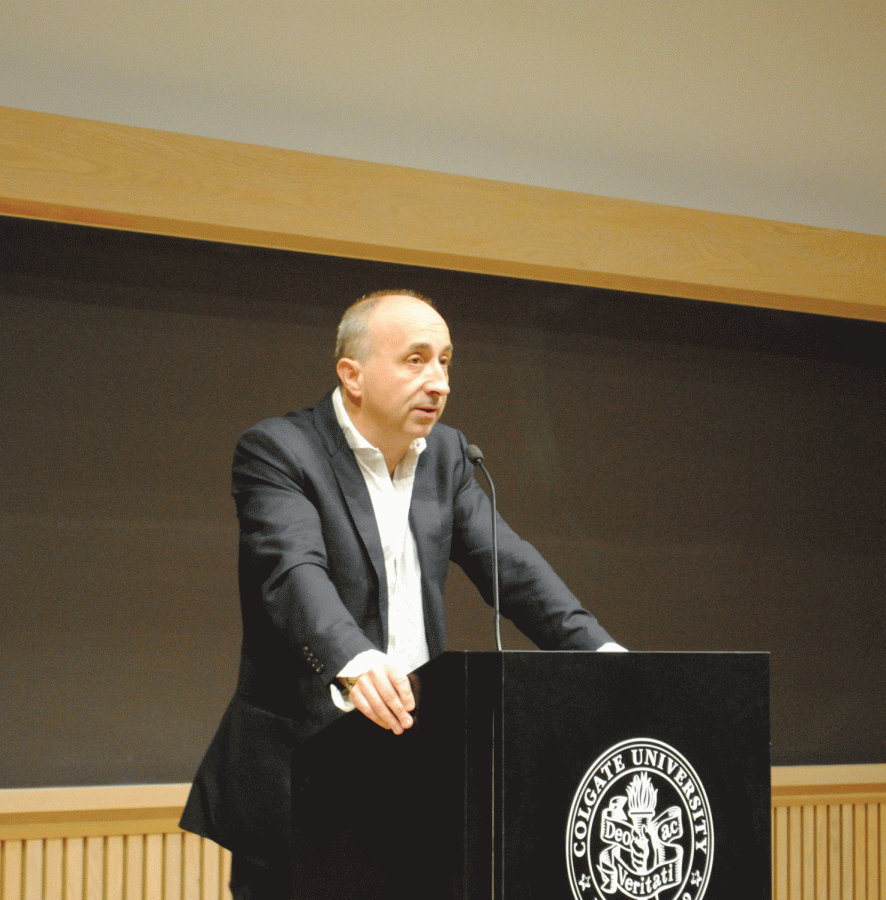Living Writers James Wood Reads Unpublished Work at Colgate Living Writers Series
James Wood spoke at Colgate Thursday, October 27 as part of the Living Writers Series. Love Auditorium was filled with students, faculty and townspeople ready to hear the journalist, literary critic, essayist and novelist share his wisdom and works. Wood began his career as a critic for The Guardian and now works as a staff writer for The New Yorker.
The respect that Wood commands as a literary critic cannot be overstated. Associate Professor of English Jennifer Brice introduced Wood to the audience, praising his quotability.
“His work is so omnipresent that when I woke up this morning with the prospect of writing the seventh introduction in eight weeks, my first muzzy thought was: I wonder if James Wood has said something quotable about today’s writer,” Brice said.
The students in the Living Writers course were assigned to read Wood’s most recent nonfiction book “The Nearest Thing to Life.” Instead of reading an excerpt from his books or essays, Wood treated the audience with an unpublished piece about his mother. After Wood’s mother passed away in 2014, Wood immediately knew that he was going to write about her life. His piece captured the audience’s attention, as it tied together relatable ideas of social anxiety and the dual life of his mother as both a parent and a teacher. Wood also paused his reading to display a picture of his mother and some of her students, truly bringing the piece to life.
“James Wood’s visit to campus was memorable and exciting, largely due to how wrong my assumptions turned out to be. Although a prominent critic for a leading publication, Wood approaches literature with kindness rather than searing judgment and humility rather than ego,” senior Abby Balfour said.
One student noted how challenging it must have been for Wood to write about his mother after her passing. In the question and answer session that followed the reading, she asked Wood about what that process was like. Wood responded that the writing of the piece itself was quite fast after he decided what form it would take.
Many members of the audience were interested in the form that Wood’s writing takes. One student was curious about the hybrid form of Wood’s book The Nearest Thing to Life. Although this text is largely a memoir, she mentioned the number of books written by other authors that Wood brought into his nonfiction book, which she described as a kind of syllabus.
“It’s natural for me to blend literature and life. I like to sink the reader down into many, many quotes,” Wood said.
Wood elaborated that as a literary critic, he aims to remove himself from the writing as much as possible. His love of literature has a large influence on his nonfiction writing. When asked about what texts are on his must-read list, Wood brought up Anton Chekhov’s short stories, particularly “The Kiss.”
“I’m continually moved and excited by Chekhov,” Wood said.
It was clear to the audience that even after years as a literary critic and author, Wood is still enraptured by the texts that he reads.







